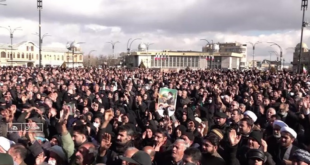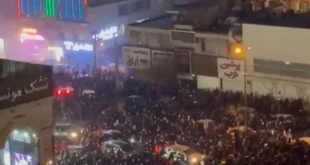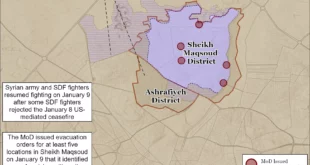 DAHAB (Reuters) — Egyptian police detained at least 10 people, including computer engineers, on Tuesday in connection with a triple bombing that killed at least 18 people and wounded scores in the Red Sea tourist resort of Dahab.
DAHAB (Reuters) — Egyptian police detained at least 10 people, including computer engineers, on Tuesday in connection with a triple bombing that killed at least 18 people and wounded scores in the Red Sea tourist resort of Dahab.
Security sources provided few details on those detained, but the state MENA news agency said two of them were computer engineers who arrived in Dahab from Cairo the day before the nearly simultaneous blasts on Monday evening.
Foreign holidaymakers described scenes of carnage caused by the bombings near a cafe, a restaurant and a supermarket in the tightly packed streets of the town, popular with scuba divers and backpackers.
Egypt’s interior ministry confirmed 18 deaths, among them four foreigners — a Russian, a Swiss man, a German child and a Lebanese national. Earlier, the ministry put the death toll at 23. Lebanese authorities said they knew of no nationals killed.
The bombings, the third similar-style attack in the Sinai Peninsula in the past 18 months, threatened to dent Egypt’s vital tourist industry, which brings in more than $7 billion a year and employs around 10 per cent of the country’s workforce.
As well as those formally detained, police said about 70 local bedouins had been pulled in for questioning.
There was no immediate claim of responsibility for the attack, though it bore hallmarks of past blasts in the region.
A little-known Sinai-based group is believed to have carried out two other similar attacks on the east coast of Sinai in the last two years, killing 100 people — one in the resort of Taba in October 2004 and the other at Sharm El Sheikh in July 2005.
Disaffected bedouins
Security experts played down possible links to external militant groups such as Al Qaeda but say they may serve as inspiration for the local attackers, who are believed to be drawn from disaffected bedouins in the Sinai.
Despite the severity of the attack, which wounded about 80 people and left body parts scattered on the tops of nearby buildings, many tourists said they planned to stay on in Dahab.
“We don’t think we’re going to change our plans. You end up thinking that it could happen anywhere these days,” said Swiss holidaymaker Matthias Barlocher.
“[But] it doesn’t feel right to be enjoying a holiday when you can see bloody footprints everywhere.” Trails of blood remained on a stretch of Dahab’s promenade, which is lined with restaurants. In other places, shopkeepers washed away bloodstains with salt and water and went to work.
Security officials said the explosions were probably caused by bombs attached to timers rather than by suicide bombers.
Forensics experts completed their investigations earlier on Tuesday but gave no details on what they had collected.
One witness to Monday’s bombings, Australian Steve Torokfalvy, said he administered first aid to victims after one explosion smashed windows and blew out doors in his hotel.
“There was one guy who was in a really bad way. When we turned him round I saw half his face was missing,” said Torokfalvy. “From the top of the hotel you could see body parts on the roofs of the shops… It was really horrible.” Despite the carnage, Europe’s two largest tourism firms, TUI and Thomas Cook, said just four customers wanted to cut short their holidays in the region.
Primitive bombs
Security officials said the bombs were primitive and looked homemade. “These were bombs that contained gunpowder and nails and were fitted with timers,” said one official.
The wounded included about 50 Egyptians, three Danes, three Britons, two Italians, two Germans, two French people, a South Korean, a Palestinian, a Swiss, an American, an Israeli and an Australian, local and foreign officials said.
Egyptian authorities say the Sinai group was founded by a man of Palestinian origin who grew up in the north Sinai town of El Arish and adopted the views of Islamists.
They say the group has no known links with foreign organisations such as Osama Ben Laden’s Al Qaeda network.
The alleged founder, Iyad Said Saleh, died in the bombing at the Taba Hilton, apparently because he set the timer of his bomb wrongly, Egyptian police said at the time.
Bedouins working in tourism in the Sinai were concerned fingers would be pointed at them over the attack.
“Bedouins are not all good,” said Saleh Hussein, a northern bedouin who works in Dahab. “But bedouins are the ones who live here, so normally if something happens [the authorities] will blame whoever is around.”
 Eurasia Press & News
Eurasia Press & News



